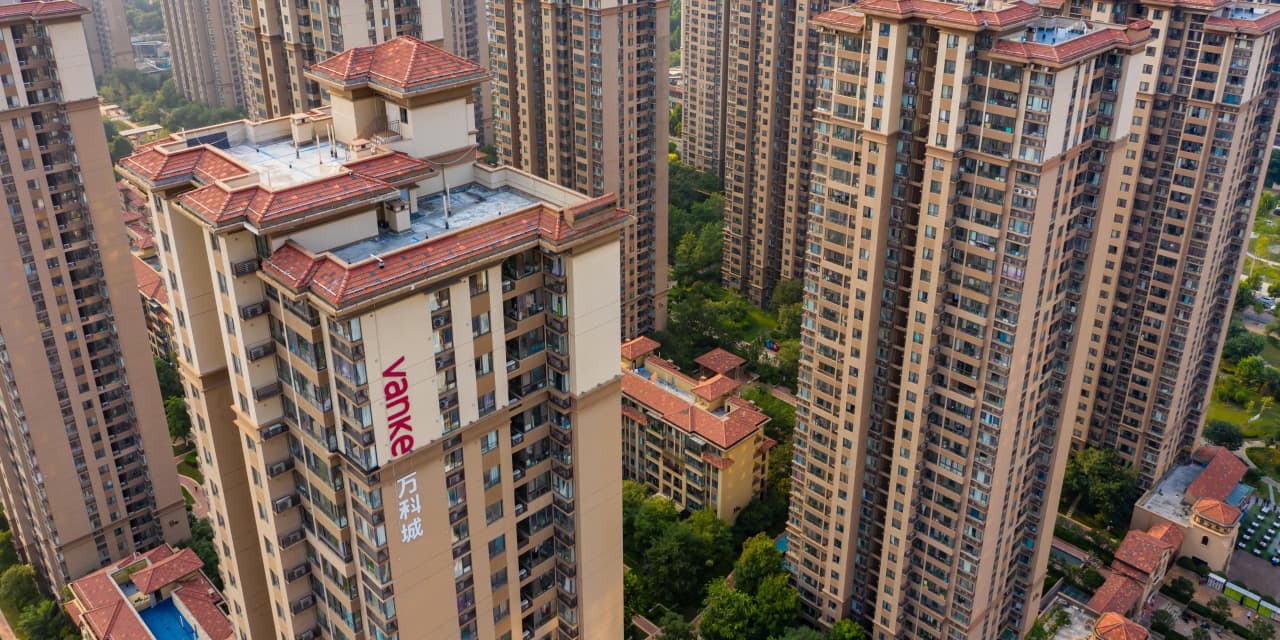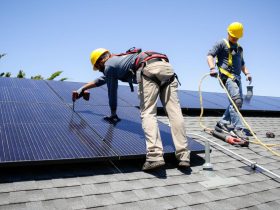China’s property crisis is a mixed picture with overwhelmingly dark shading, yielding benefits in a few areas but threatening far broader damage.
Liu Jianguo, a 46-year-old teacher in the second-tier city of Guiyang, just bought a new apartment with help from his parents. He says that in his province, Guizhou, prices are low and that the time had come to buy.
But Liu is a rarity. Over recent months, numerous homeowners have expressed frustration to Barron’s over declines in the value of property, the main investment vehicle for most families. Only in second-tier cities, such as Guiyang, are sales actually growing, according to data from Wind, a provider of financial information.
Prices are low, nationwide, but most others across the country still aren’t feeling the same confidence as Liu.
That is critical because real estate plays a central role in the Chinese economy. It is where most citizens choose to invest their savings—70% of household wealth lies in the sector—and property accounts for close to 30% of the country’s gross domestic product, according to independent estimates.
Car salesman Zhong Weiyi, 58, pins diminished housing sales—and weak consumption across the economy—on low confidence about financial security. “If housing prices and pensions keep shrinking, I wonder what kind of security I will have in my 70s,” he told Barron’s from the first-tier city of Chengdu.
That lack of confidence is adding to the challenge for policy makers as the overall economy continues to struggle across nearly all areas, from consumption to exports. China’s failure to rebound after last year’s post-Covid reopening has become one of the most disappointing economic stories of 2023. Expectations are growing that it could take a year—or a decade—to fix the property-sector troubles that are dragging on growth.
The country’s property stocks tumbled last week to their lowest level since 2011, while a survey revealed that a record share of investors plan to ditch their China property holdings over the next year. And the billionaire chairman of what was once the most valuable real estate company in China has been taken under police control.
That China’s property market is experiencing one of its worst periods in modern times is quite a feat considering how turbulent the enormous sector has been. The distress has dragged on for years at varying levels of intensity.
Defaults have plagued developers, most notably in 2021, when China Evergrande, the world’s most indebted developer, lost 476 billion yuan ($65 billion) and failed to make interest payments to international investors. The next year, two other big players defaulted—
Sunac China Holdings
(1918.HK) and
CIFI Holdings
(884.HK).
All eyes are now on developer Country Garden, which missed a $15 million interest payment on an offshore bond two weeks ago and has a grace period of another few weeks to avoid default. The consensus among observers is that it won’t come up with the funds.
Evergrande shares
(3333.HK), which are traded in Hong Kong, were suspended Thursday, a day after the company’s chairman was put under a form of unexplained house arrest common in China.
Analysts say Evergrande’s offshore-debt restructuring plan—crucial for its survival—is now more in doubt than ever. “[The company is] very likely to fail on debt restructuring, and with negative equity, Evergrande may go into bankruptcy, which includes bankruptcy reorganization and bankruptcy liquidation,” brokerage UOB Kay Hian wrote in a note on Wednesday.
None of the developers under duress responded to Barron’s requests for comment.
Besides investors, major Chinese lenders are among those that could feel the brunt of continued failures in the industry. Not only do they stand to lose if developers default on what they owe, but a sliding property market makes people less likely to borrow to buy homes.
Developers said prices contracted in September as sales continued to dwindle, though a bit less rapidly. Real estate agents reported lower prices for finished units, saying sales were flat even though mortgage rates have been slashed.
Commercial property hasn’t been spared. Price gains and the pace of transactions have decelerated sharply, Shehzad Qazi, managing director of the consultancy China Beige Book, told Barron’s.
The property market is now in a state of dangerous long-term disequilibrium, where supply far outpaces demand. Urban housing demand is in free fall. Some 18 million units were sold in 2017, with 11 million and nine million estimated for this year and 2030, respectively,
Goldman Sachs
said in a recent report.
A consensus also seems to be forming that China won’t emerge from this property crisis soon. On Sept. 25, two influential voices in Chinese finance said publicly that it could be at least a year, if not more, until the industry recovers.
In media interviews, Grow Investment chief economist Hong Hao, known for being banned from Chinese social media for repeatedly bearish—and prescient—predictions, said fixing the sector could be a multiyear project, or even a decade’s work.
“Without a true property recovery, it would be hard to fathom the nascent recovery that we are witnessing right now can last,” Hong told Barron’s.
Separately, Li Daokui, a former member of the People’s Bank of China monetary policy committee, said that particularly in smaller cities it could take at least a year to see signs of an upswing, according to Bloomberg.
Both experts called on Beijing to do more to support the sector.
Economist Michael Pettis poured cold water on even future “recoveries.”
“Given residential property prices that are still extraordinarily high by any standard except the very recent past, any ‘recovery’ is likely to be temporary at best,” he told Barron’s. “Rather than hoping for recovery, Beijing should instead focus on policies that minimize the cost of disruption,”
Beyond the bargains that buyers such as Liu see in second-tier cities, the bright spots are dim and scarce.
Property sales in September rose slightly from July and August while year-over-year declines shrank as well. But recent stimulus measures rolled out by policy makers boosted the secondary market at the expense of new-home sales, according to a Rhodium Group analysis released Wednesday.
State-owned developers are also doing well while the rest of the industry flails. With double-digit sales declines across the sector as a whole, SOEs have reported strong sales growth this year, largely “because home buyers have more confidence in state-owned firms finishing their houses,” Logan Wright, director of China markets research at Rhodium, told Barron’s.
Write to editors@barrons.com
Read the full article here













Leave a Reply